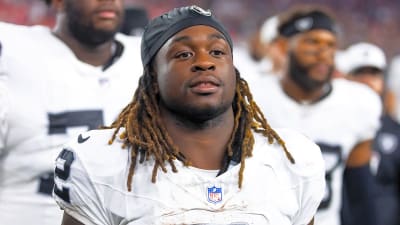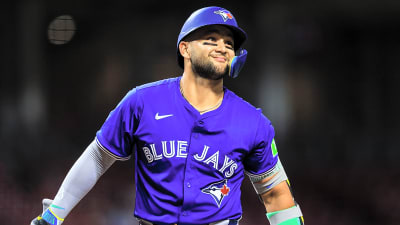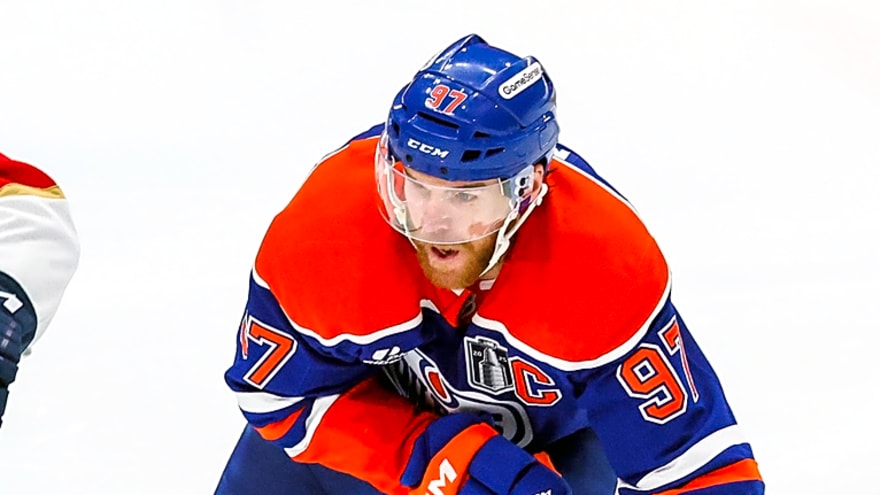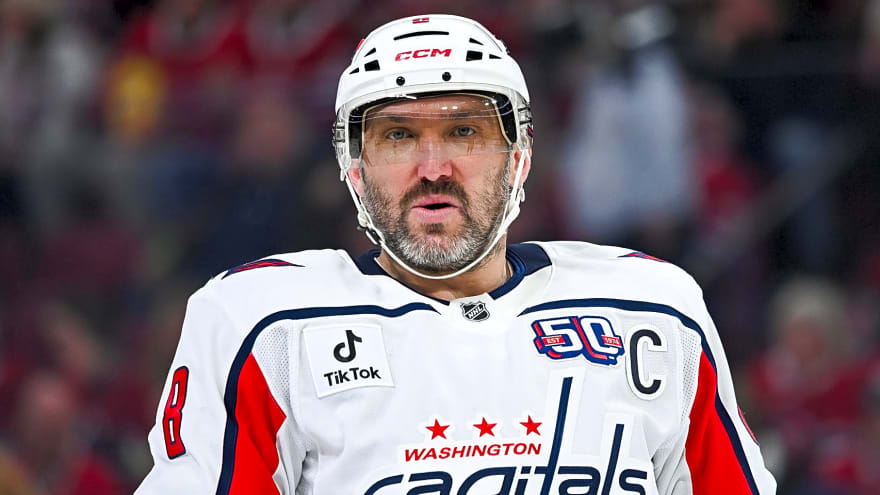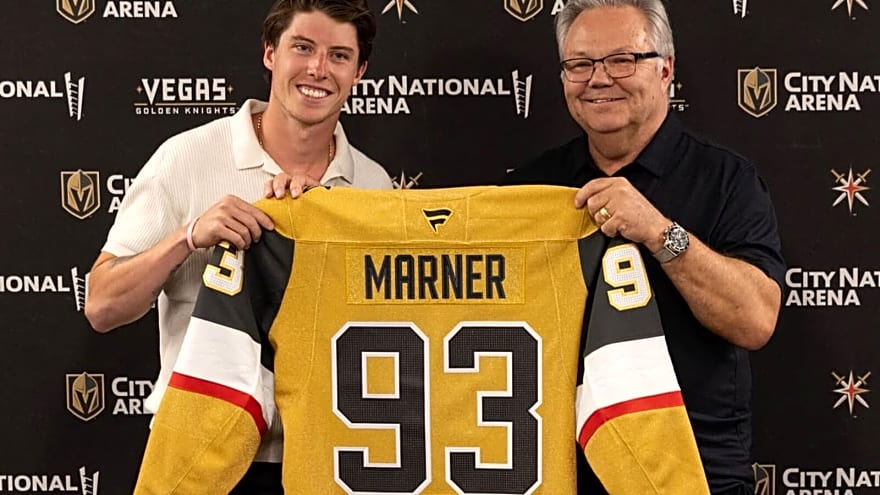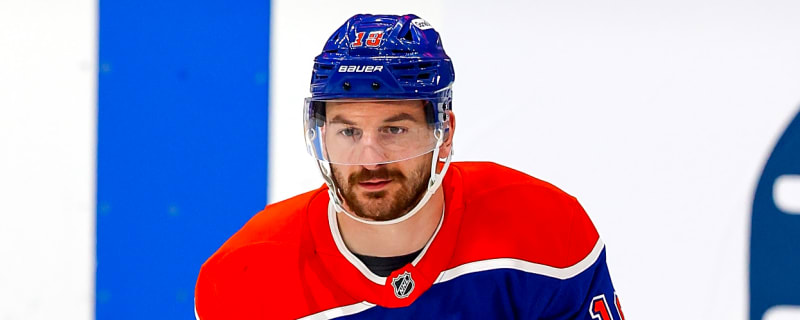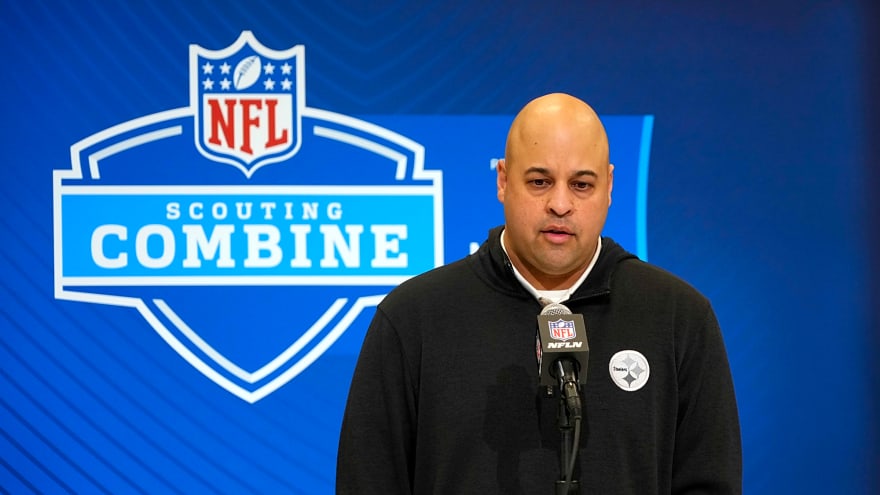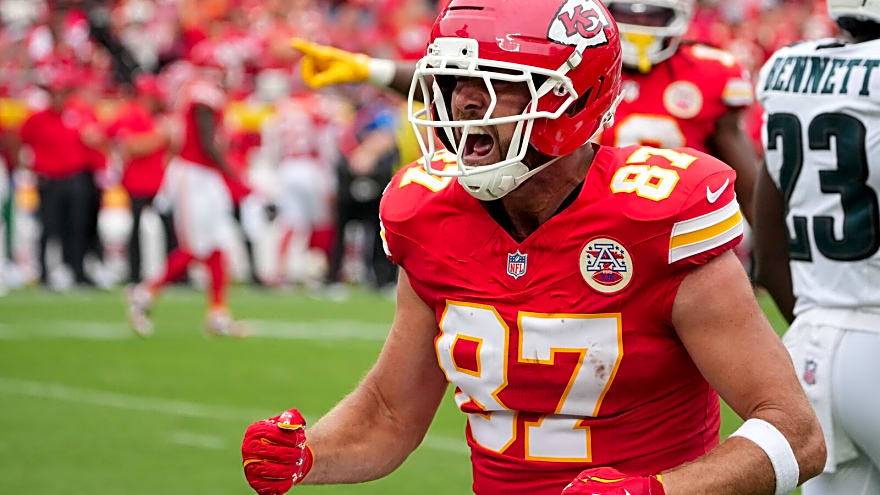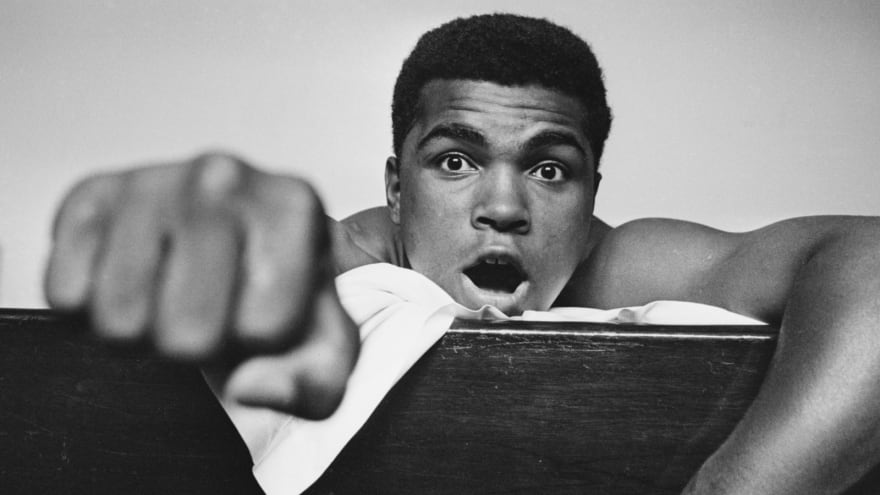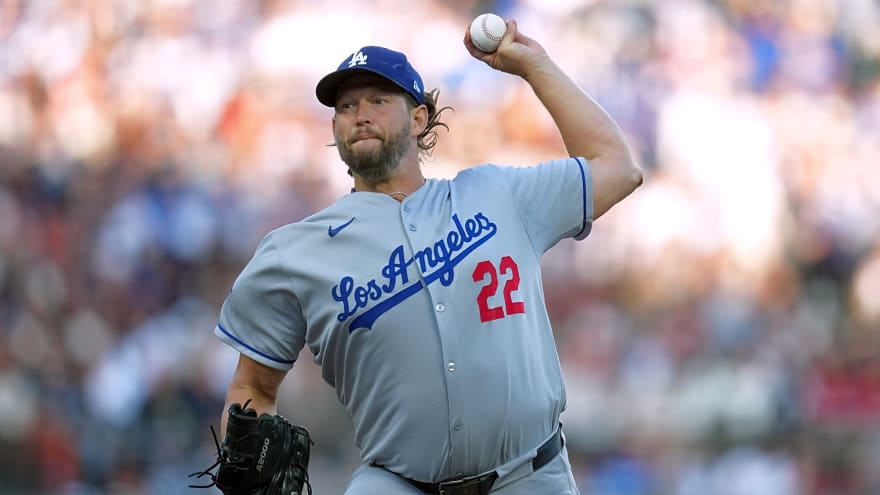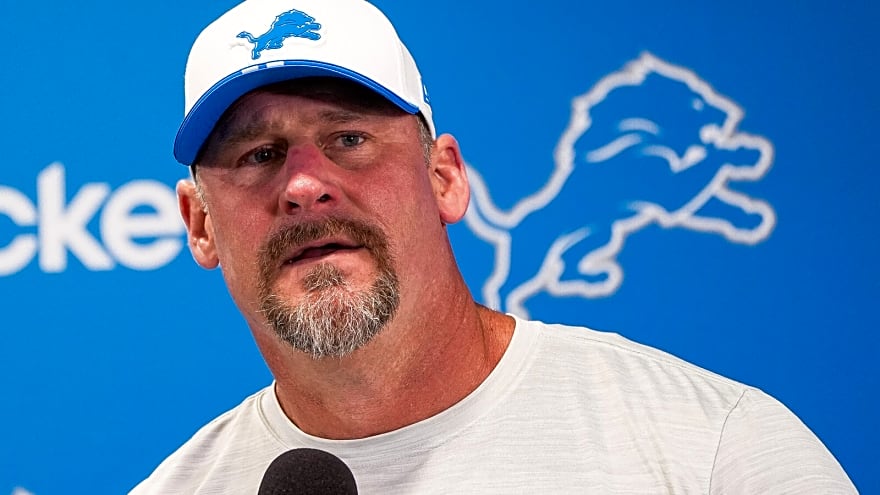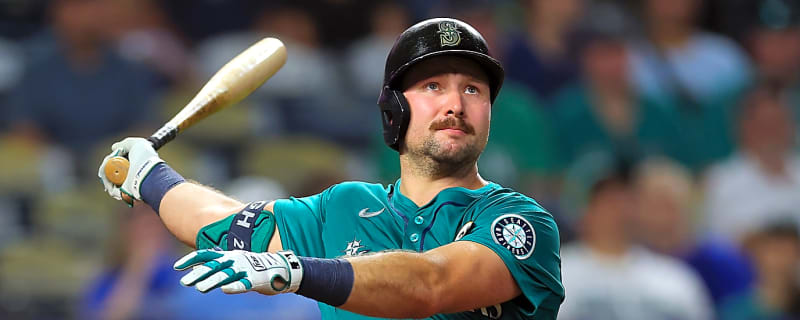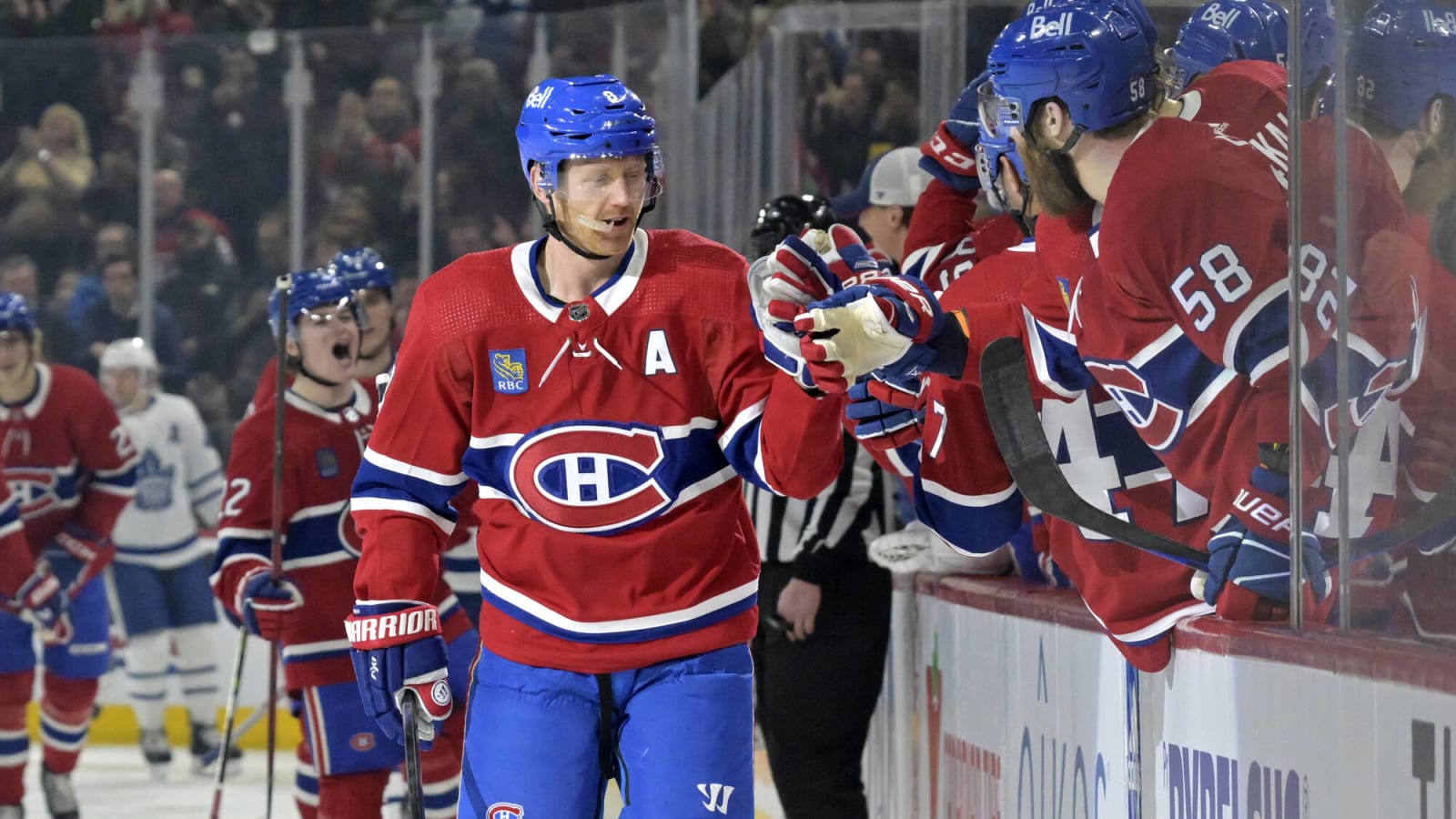
(Editor’s Note. This is a special guest post by Montreal Canadiens analyst Andrew Berkshire)
Some have suggested Montreal Canadiens defenceman Mike Matheson is actually the player P.K. Subban’s biggest critics suggested he was during his time with the team.
Truth be told, that’s not really a bad thing, but it is a big reason why he’s facing so much criticism this season.
One of the most polarizing positions in hockey is that of an offensive defenceman.
If you’re the last man back, and your job is to make things happen to move the puck up the ice, when you make a mistake, it’s going to loom larger than a winger bobbling the puck at the offensive blue line.
Combine that with the fact that Matheson has been the Canadiens’ number one defenceman for two years now, playing 25:04 per game; the seventh-highest average ice time in the NHL over that time, and you’ve got a recipe for undue criticism.
However, Matheson is obviously not without his faults.
When you take a look at Matheson’s player card from Evolving Hockey, it becomes clear that not everything is going his way this year.
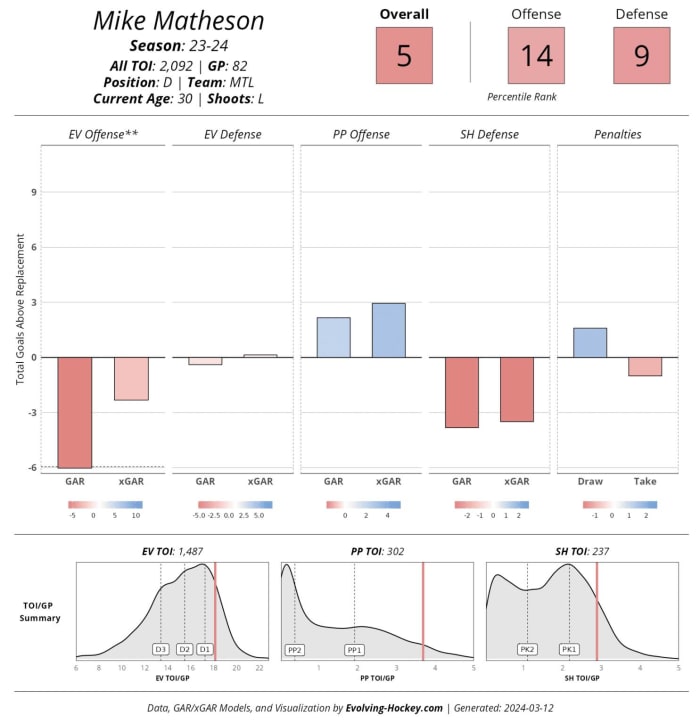
Making Sense Of The Numbers
At a glance, the data in that player card looks disastrous, but this kind of information is a starting point in our analysis, not the endpoint.
So why exactly is a player who plays 25 minutes per night, who often looks dynamic, who is having a career year offensively on pace for 59 points, a fifth percentile player in goals above replacement in the NHL?
Goals above replacement is a model that attempts to combine a bunch of data to measure the impact of a player, relative to fringe NHL players at that position. Essentially, how many goals plus or minus does a player contribute to the team over what an AHL call-up would?
Being a fifth percentile player means that 95 percent of your peer group is having a better impact on the game than you are, and frankly watching Mike Matheson night in and out, I think we all know he’s not even close to that bad, so what’s going on here?
For starters, let’s look at the good stuff.
Matheson has had a very positive impact on the powerplay. He fits in very well with that top unit of Nick Suzuki, Juraj Slafkovsky, Cole Caufield, and Alex Newhook.
Yes, he does at times look off Slafkovsky as a passing option, but I believe it has more to do with simple-handedness than it does with anything between the players, as fans at times assume. It’s much easier for Matheson to send a quick pass to Suzuki on the left side than pass across his body to Slafkovsky.
It should be noted Matheson has done a much better job identifying Slafkovsky as a shooting option on the powerplay now that Sean Monahan has been traded to the Winnipeg Jets.
Juraj Slafkovsky gives the Habs a 2-0 lead with a nice shot on the powerplay. pic.twitter.com/qcAH9VeL7L
— Marc Dumont (@MarcPDumont) March 12, 2024
Matheson’s bullet of a shot, elite skating, and strong anticipation make him a good decoy to open up shooting lanes for other players, and he is incredibly skilled at holding the blue line, especially on broken plays.
Those keep-ins allow the powerplay to take its time and not have to worry about gaining the zone as often, even if he isn’t personally creating as many high-end passes. His role is as a support player on the powerplay, and a trigger man if nothing else is working, to keep penalty killers honest.
His offensive contributions aren’t perfect, of course.
There’s the good; his anticipation for where to be to take part in the offence is, in my opinion, among the best in the league for defencemen.
And there’s the bad; his next touch after receiving the puck is often not the best decision, which I do think holds him back quite a bit at even strength, but doesn’t hurt him as much on the powerplay at 5-vs-4, because of his role as a support for the big movers on the unit.
Matheson also draws a lot of penalties for a defenceman. With 19 minors drawn from the opposition, Matheson is tied for fourth in the NHL among defencemen, however, he also takes a lot of minors with 26, which puts his -7 penalty differential at a tie for 134th among 203 defencemen to play 500+ minutes this year.
He plays an absolute ton on special teams, but his results on the penalty kill are poor, which is hard to isolate as his issue since the Canadiens’ penalty kill has been a mess all season anyway.
5v5 Impact On Canadiens Lineup
Aside from the penalty kill, we can see that Matheson’s even-strength play looks pretty rough. His defensive play is fine, with his expected performance being above replacement in very tough minutes, but his offence has been terrible.
That doesn’t match the eye test at all when you think of Matheson, so let’s dig in further once more.
Mike Matheson attracts all the attention with his great skating, setting up Sean Monahan to put the Habs up 3-0. #GoHabsGo pic.twitter.com/PECAb8OgQw
— Marc Dumont (@MarcPDumont) January 26, 2024
While Matheson is 10th in the NHL in points among defencemen, he ranks tied for 47th among defencemen at even strength with 18 points, and his 0.93 points per 60 minutes in that game state ranks 109th.
Those aren’t great numbers, but they aren’t abysmal, however, 50 percent of those points are secondary assists, which count for less in models because they’re less repeatable than goals or primary assists.
Per 60 minutes played at 5-vs-5, while Matheson is on the ice the Canadiens produce less offence than when he’s on the bench this season, which is hard to fathom given his skills. Only Jayden Struble has a lower on-ice expected goals for mark than Matheson’s 2.46 per hour, and his actual goals for per hour is a dismal 1.74, ahead of only Christian Dvorak and Brendan Gallagher.
Any time your actual goals for are lower than expected, there’s usually a finishing issue, and the Canadiens are only scoring on 6.41 percent of their shots while Matheson is on the ice, compared to their season-long 8.39 percent overall at 5-vs-5, so there’s absolutely an element of bad luck at play.
However, I do think there’s a bigger issue, and it circles back to the comparison to Subban.
When Subban was in his prime, the general thought was that he was a very risky player. Despite that narrative, he was empirically one of the best defensive players in the league over that time, both in terms of individual actions and team results.
Eric Engels from Sportsnet rightly pointed out that Matheson similarly has some strong individual defensive markers from data tracking companies like Sportlogiq, but he used per-game metrics instead of pro-rated per 60 minutes, which obscures the data because Matheson plays so much.
Regardless, Matheson boasts a very low turnover rate, despite being amongst the league leaders in actual turnovers, because he has the puck a lot. He possesses a lot of individual skills that allow him to defend well too.
He’s an exceptional skater, and very good at stick checking, but there’s also a reason why Matheson leads the league in stick checks per game; he’s defending a lot, and often against the opponents’ best players.
If you break down Matheson’s even strength results by who he plays with, an interesting trend emerges. With the top line of Suzuki, Caufield, and Slafkovsky, the offence drops considerably from 3.09 goals per 60 minutes at 5-vs-5 without Matheson on the ice, to 1.82 goals per 60 minutes.
Why?
Well, when does the coaching staff tend to unite the top line with Matheson? Most often, it’s when they’re worried about a high-end line on the opponent’s team.
Perception Versus Reality
What I notice in those situations is that Matheson tries to push the envelope too much, and gets caught, forcing more time in his own zone, but even still, that four-man unit has an expected goals share of 52.7 percent.
What’s interesting is that Matheson does have a good defensive impact on most of his teammates, but because the offence hasn’t been there at even strength, and because he makes a lot of risky plays to make offence happen, there’s a perception that he’s a big defensive anchor that I don’t believe bears out in reality.
That being said, I do think it’s very clear that while Matheson is capable of playing 25 minutes per night from a fitness point of view, his game does suffer from trying to do too much, and frankly in terms of results, I think fans have picked up on the fact that Kaiden Guhle is probably Montreal’s best defenceman overall.
There’s a pretty simple solution here to help Matheson excel and also make the Canadiens better.
It’s splitting up Guhle and Matheson.
Matheson should be holding down the second pair at even strength, while Guhle takes the toughest minutes with a stable partner like Johnathan Kovacevic.
Slot Matheson into the role he’s better suited to, and reduce his penalty-killing minutes because it’s not a strength anyway.
Matheson is a very good hockey player, anyone with eyeballs could tell you that, but the combination of being overburdened in terms of responsibility and bad shooting luck while he’s on the ice has created friction where there doesn’t need to be.
He can still absorb heavy minutes, and surprisingly his results were better with David Savard than with Guhle anyway.
I’m sure the Canadiens are hesitant to call a 22-year-old defenceman their number one guy, but until someone like David Reinbacher or Lane Hutson blossoms and takes over, on the defensive side of the ice, this is Guhle’s team now, and that’s better for Matheson too.
More must-reads:
- Concerning report emerges about Capitals star Alexander Ovechkin's health
- Eli Manning wouldn't help Giants QB Jaxson Dart with an unexpected request
- The 'Switch-hitter single-season HR leaders' quiz
Breaking News
Trending News
Customize Your Newsletter
 +
+
Get the latest news and rumors, customized to your favorite sports and teams. Emailed daily. Always free!
TODAY'S BEST
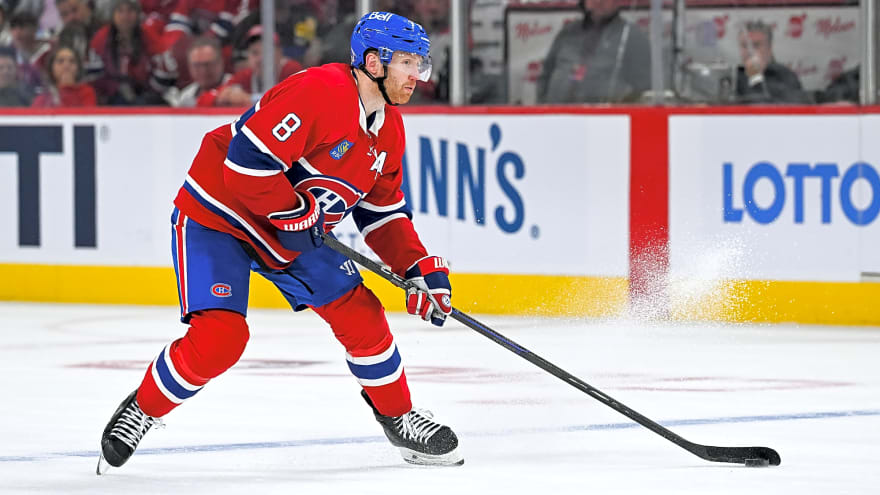
Mike Matheson and David Savard in talks with the Canadiens
Mike Matheson has entered the final year of his contract and, with an annual salary of $4.875 million, will be free as a bird on July 1 if he hasn’t signed a new deal by then. But if we’re to believe David Pagnotta(The Fourth Period), it might not come to that, because according to the informer, discussions are currently underway between the defenseman and the Canadiens to extend his contract. We know that Matheson wants to play here, and we also know that the Canadiens like him a lot. Jeff Gorton praised him this summer, saying he was important to the club at the moment… and even if there are other defensemen growing within the organization, making room for a veteran like him isn’t a crazy idea. Especially when you recognize the fact that the Canadiens’ defense is very young. Matheson is valuable to the Canadiens. His role will diminish (possibly even more so after the arrival of Noah Dobson), but we’re still talking about a player who helps the team in his own way. Last season, he was particularly useful on the power play, and he’s likely to have a similar role this year too. If he can produce offensively, on top of all that… [content-ads] Matheson is said to be in talks with the Habs… but the same can be said of David Savard. No, it wouldn’t be in the context of a return to the ice. But the former Canadiens defenseman, who retired at the end of last season, admitted to Kevin Dubé(Journal de Québec): there may be a position waiting for him with the Canadiens at some point. We’ve had a lot of conversations, and nothing’s closed yet. – David Savard The Journal de Québec article was published on the TVA Sports site (and Habs and NHL also wrote on the subject): It’s not the first time we’ve heard about this, but it’s interesting nonetheless. Because it shows one thing: there really seems to be an interest on the part of the defenseman and the organization to find something for him. Savard was on the ice with the Quebec Remparts on Tuesday, and it’s worth remembering that he’ s associated with 44 seconds, a consulting firm that helps junior and professional defensemen. Clearly, he’s still interested in staying in the hockey world. And so much the better, if the Canadiens are able to find a role for him within the organization [spacer title=’Overtime’] – It’s true that we’re talking about a beautiful amphitheatre. – The – He knows what he has to do. – Happy reading,

Raiders' Pete Carroll admits disappointing truth about Ashton Jeanty
The Las Vegas Raiders had high hopes and expectations when they took Boise State phenom Ashton Jeanty with the No. 6 pick in this year's draft. It's becoming increasingly rare to see running backs drafted so high, but after watching him post one of the single greatest seasons in college football history, he looked more than worthy of that honor. So far, however, the 2024 Heisman Trophy finalist has looked quite mortal in his first two games in the pros. Ashton Jeanty hasn't gotten off to a fast start in the NFL He logged 38 yards and one score in his NFL debut, and then logged just 43 yards on 11 carries in the loss to the Los Angeles Chargers in Week 2. That's why Raiders head coach Pete Carroll had to admit that they needed to take things slowly with Jeanty. While he acknowledged that they hadn't done much to put Jeanty in a position to succeed, he remains optimistic about the RB's prospects. "We're just getting started (with Jeanty)," Carroll told the Las Vegas Review-Journal. "He's breaking into the NFL. He's figuring it out. He'll get more carries. We have to run the ball more effectively. We only got (68 yards), and that's not enough. We need more than that. We're bringing (Jeanty) along. More will come." Ashton Jeanty knows he has to do better Jeanty is averaging 2.7 yards per attempt, which is a far cry from his 6.4 yards per carry in college. At least he knows he has to be better, and he believes it's just a matter of time before he gets used to the speed of the pros. "Last week it was on me, I didn't do a good job of reading the plays. I'll put it on myself again this week," Jeanty said. "Just getting used to the speed, honestly. Last week kind of felt like I was moving a little slower, this week felt better. Still not there yet, but once it happens, it will be good." Jeanty continued commenting on the situation on Wednesday. He didn't mince words. Jeanty has posted the fewest rushing yards (81) among players with at least 30 carries, and his next chance to turn the page will come in Week 3 against the Washington Commanders' beatable run defense.

Bombshell report expands on culture issues within 0-2 Dolphins
A Wednesday report shared that the Miami Dolphins "did a lot of work in the offseason to try to transform their team culture" before they opened the ongoing campaign with back-to-back losses. For a lengthy piece published on Thursday, Marcel Louis-Jacques of ESPN expanded on alleged culture issues that have impacted the Dolphins under head coach Mike McDaniel, who has been in his role since 2022. Mike McDaniel hasn't run a tight ship with Dolphins "Multiple sources in and around the team said tardiness was an issue throughout this past season," Louis-Jacques revealed. "...One current Dolphins player said he believed some captains this past season took advantage of the role. [Cornerback Jalen Ramsey] and wide receiver Tyreek Hill, who were two of the eight players voted captains in 2024, were among repeat offenders who received numerous fines throughout the season. Players were often late to practice and meetings, with multiple team sources suggesting it reflected a lack of respect for the first-time coach McDaniel -- who was hesitant to publicly admonish players outside of posting fines." On Wednesday, ESPN's Jeremy Fowler noted that Dolphins players "believe the culture is better after the franchise moved on from several key players, many of whom did not appear happy there." Specifically, Ramsey and tight end Jonnu Smith were traded to the Pittsburgh Steelers in exchange for safety Minkah Fitzpatrick and a pick swap in June. Safety Jevon Holland left the Dolphins and signed with the New York Giants in free agency. As for Hill, questions about his dedication to the cause arose when he subbed himself out of Miami's regular-season finale and then told reporters that he was "out" this past January. He later publicly apologized for his actions but has remained the subject of trade rumors through September. Are McDaniel and Dolphins general manager Chris Grier on the hot seat? Whispers throughout the offseason suggested Dolphins owner Stephen Ross could part ways with McDaniel and general manager Chris Grier if the club finished this season without at least a playoff appearance. McDaniel has yet to guide the Dolphins to a single postseason win, and his team was coming off an 8-9 campaign before it dropped two straight games this month. "A source familiar with Ross' thinking told ESPN this offseason they don't believe McDaniel's and Grier's job security is as simple as 'playoffs or bust,' and reiterated that sentiment after Week 1," Louis-Jacques wrote. "...Although there is a limit to [Ross'] patience with the team's results. After a winless start to the 2025 season, and prime-time games against division opponents coming, there will be increased outside attention on how far Ross' patience will stretch." As of Thursday morning, ESPN BET had the winless Dolphins as massive 11.5-point road underdogs for Thursday night's game at the 2-0 Buffalo Bills. One can't help but wonder how Ross may react if Miami gets blown out at Buffalo's Highmark Stadium.

Kyle Shanahan has surprising Brock Purdy update — 49ers are confident in QB situation regardless
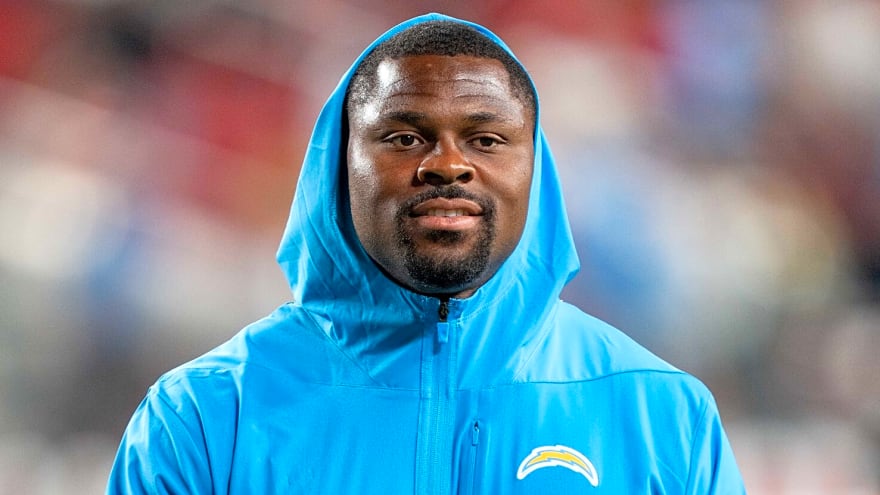
Chargers star Khalil Mack's outlook is better than expected
Los Angeles Chargers outside linebacker Khalil Mack will be out for a few weeks after dislocating his elbow during Monday night’s matchup with the Raiders, according to NFL Network’s Ian Rapoport. Who will take Khalil Mack's place for the Los Angeles Chargers? The injury is not season-ending, but Los Angeles will need one of its depth outside linebackers to take Mack’s place for the time being. That will likely be veteran Bud Dupree, who replaced Mack on Monday and has significantly more experience than third-year UDFA Caleb Murphy or fourth-round rookie Kyle Kennard. At the moment, it seems unlikely that the Chargers will make a signing to bolster their OLB depth. Mack’s injury is not expected to be long-term, and the pool of free-agent edge-rushers has suddenly dried up after both Preston Smith and Jadeveon Clowney signed with new teams this week. The Chargers did host their rival's former draft bust on a visit. Instead, the Chargers’ plan will likely be as follows: Dupree will start, with Murphy receiving a bump in snaps as the No. 3 edge-rusher and Kennard making his NFL debut after two healthy scratches to start the year. The team was comfortable with only four active outside linebackers in Weeks 1 and 2, so it may not feel the need to make an elevation from the practice squad. Mack, 34, was quiet in Week 1 against the Chiefs but looked better on Monday with one sack and one tackle for loss in Las Vegas. He re-signed with the Chargers this offseason on a one-year, $18M deal after six sacks in 2024.
